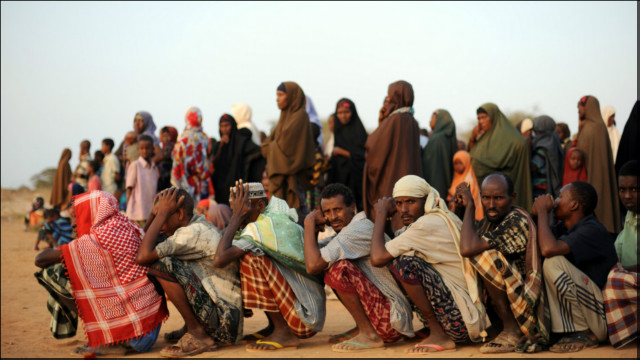 The UN refugee agency has again urged Kenyan authorities to reconsider a directive to relocate some 350,000 Somalia refugees living in Dadaab refugee camp in northeast Kenya.
The UN refugee agency has again urged Kenyan authorities to reconsider a directive to relocate some 350,000 Somalia refugees living in Dadaab refugee camp in northeast Kenya.
The UN High Comissioner for Refugees (UNHCR) said in a statement released in Nairobi that it stands ready to work even more closely with the government to strengthen law enforcement at Dadaab and support other measures to protect refugees and Kenyans alike against possible intrusion by armed actors from across the border.
“We are thus urging the Kenyan authorities to give the matter further consideration,” UNHCR said in the statement.
Deputy President William Ruto on Saturday announced that the Dadaab refugee camps should be closed within three months and the 350,000 Somali refugees living there return to their country.
Kenya has for many years hosted tens of thousands of Somalis refugees whose lives were at substantial risk that requires international protection.
As Nairobi hosted protracted negotiations that culminated in the formation of the transitional federal government of Somalia, Ruto said the refugee situation continues to pose security threats to the country and the region apart from the humanitarian crisis.
Ruto said the camp has been suspected of harbouring terrorists who plan and carry out attacks in Kenya.
The government’s decision was announced following the horrific attack at Garissa University College where 148 people were killed.
The UN refugee agency expressed concern that abruptly closing the Dadaab camps and forcing refugees back to Somalia would have extreme humanitarian and practical consequences, and would be a breach of Kenya’s international obligations.
“UNHCR works closely with the government and we understand well the current regional security situation and the seriousness of the threats Kenya is facing,” said the statement.
“We also recognize the obligation of the government to ensure the security of its citizens and other people living in Kenya, including refugees.”
In December 2014, a pilot scheme was launched to support people who seek to voluntarily repatriate to one of three relatively safe areas of Somalia, namely Luuq, Baidoa and Kismayo.
UNHCR said it’s ready to work with the governments of Kenya and Somalia to step up this program where there are opportunities for voluntary repatriation.
“Nonetheless, for now UNHCR considers that large-scale returns are still not possible in many parts of the country, in particular to
South Central Somalia,” the statement said.
(Source: Xinhua)
.






























